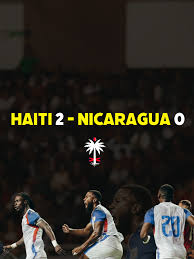Current Developments Relating Nicaragua and Haïti

Introduction
The political and social dynamics in Nicaragua and Haïti have caught the attention of international observers, especially as both nations face significant challenges. Understanding the developments in these countries is crucial, as they possess historical ties and share mutual concerns related to governance, economic stability, and humanitarian issues.
Nicaragua’s Recent Developments
As Nicaragua grapples with ongoing political turmoil, the authoritarian regime led by President Daniel Ortega has faced heightened scrutiny from various international bodies. Following the 2021 elections, which many observers deemed fraudulent, the country has seen a crackdown on dissent, with numerous political prisoners imprisoned and civil society organizations under severe pressure. Reports indicate that Nicaragua’s economic conditions are deteriorating, exacerbated by a combination of mismanagement and the global impact of the COVID-19 pandemic.
Haïti’s Ongoing Crisis
Haïti, on the other hand, is experiencing a deepening crisis amid rampant gang violence, food insecurity, and political instability following the assassination of President Jovenel Moïse in July 2021. The interim government struggles to maintain control as gang violence disrupts daily life and humanitarian efforts. Meanwhile, international agencies warn that nearly half of the population faces acute hunger. In the face of these challenges, there have been calls for foreign intervention or support, raising questions about sovereignty and the effectiveness of such measures.
Comparative Analysis and Implications
The situations in Nicaragua and Haïti, while distinct, share common themes of governance challenges and the impact of political decisions on the everyday lives of citizens. Both nations demonstrate the significant consequences of leadership choices on social stability and economic viability. Moreover, the humanitarian crises emerging from both countries have prompted international responses that could reshape regional dynamics. Observers note that how Nicaragua and Haïti navigate their crises may set precedents for other nations facing similar challenges in Central America and the Caribbean.
Conclusion
The unfolding events in Nicaragua and Haïti underscore critical issues of governance, human rights, and economic stability that resonate not only within their borders but across the region. As both nations strive to overcome their respective crises, the international community will continue to monitor their paths closely, hoping for resolutions that enhance stability and improve the quality of life for their citizens.








